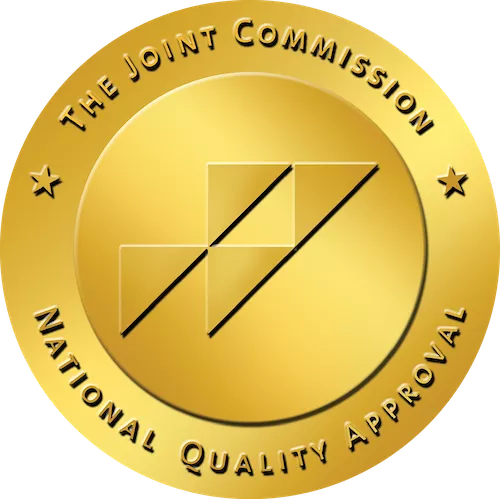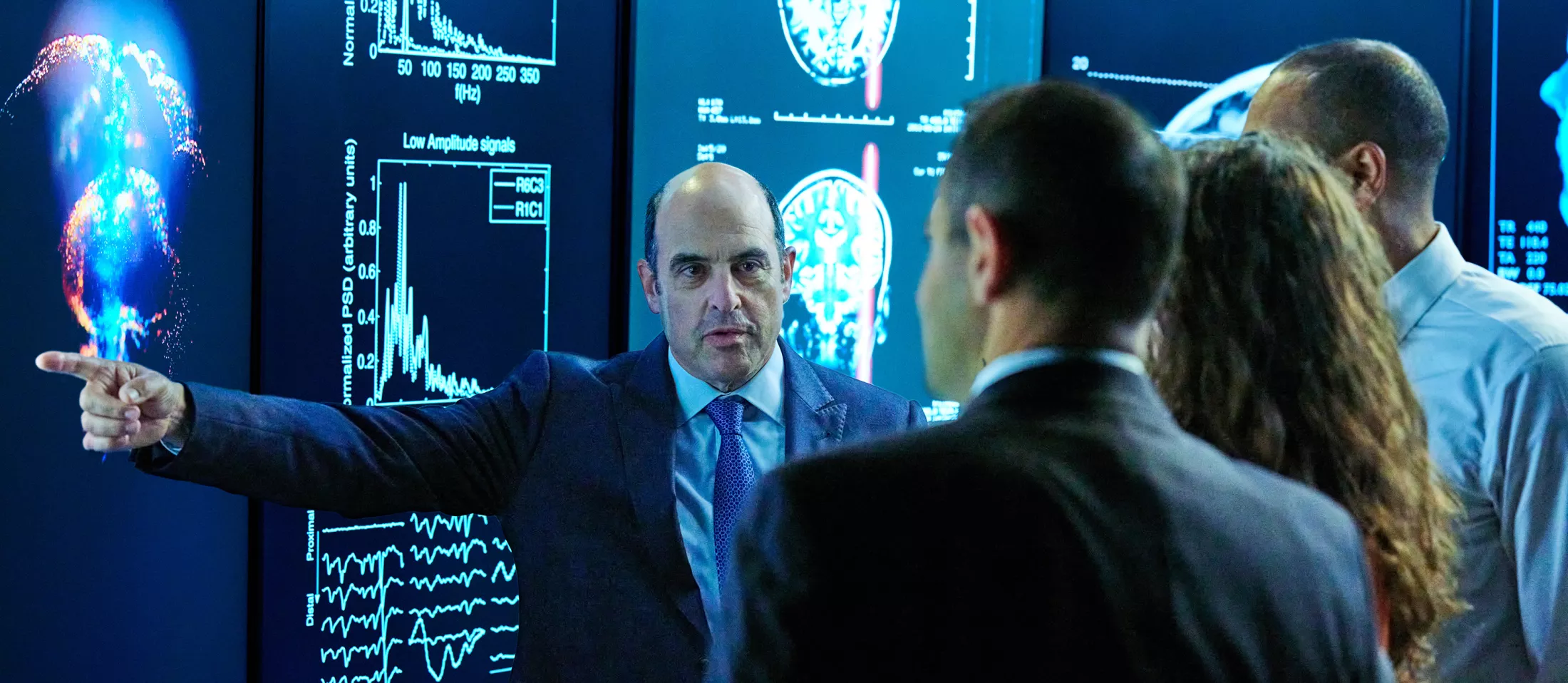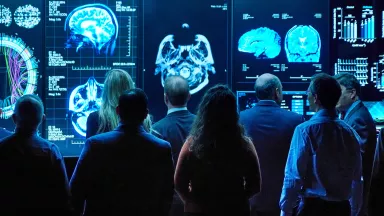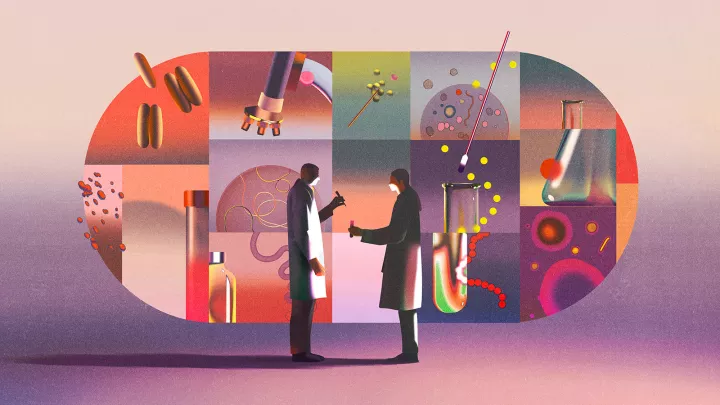Our Approach to Neurovascular Conditions



The Montefiore Einstein Comprehensive Neurovascular Center is one of the leading destinations worldwide for the management of vascular diseases of the brain and spine, including ischemic and hemorrhagic strokes, venous occlusive disease, vascular malformations, subarachnoid hemorrhages, traumatic injuries and congenital conditions.
We are the first health system from the Bronx to the Hudson Valley to have earned the prestigious Comprehensive Stroke Center designation from the Joint Commission and are among the top three percent of hospitals in the nation to earn this designation. We are ranked in the top one percent of all hospitals in the nation for neurology and neurosurgery according to U.S. News and World Report and the highest-volume pediatric and adult stroke center in the New York metropolitan region. We’re among the highest-performing centers in the nation for neurology and neurosurgery, and Montefiore Einstein’s Burke Rehabilitation Hospital is ranked in the top one percent of all U.S. hospitals for rehabilitation, according to U.S. News & World Report. Additionally, we are recipients of the highest standard for rehabilitation medicine, a three-year designation granted by the Commission on Accreditation of Rehabilitation Facilities (CARF).
The Montefiore Einstein Comprehensive Neurovascular Center team is led by internationally renowned vascular neurologists, neurosurgeons, as well as diagnostic and interventional neuroradiologists, neuro-anesthesiologists, rehabilitation specialists and neurocritical care physicians who use the most advanced and emerging imaging technology and procedures to diagnose and treat patients of all ages who suffer from complex, life-threatening neurovascular conditions. We offer a complete array of state-of-the-art solutions for the full spectrum of neurovascular diseases, including endovascular, open, minimally invasive and hybrid surgeries.
Groundbreaking Stroke Research, Clinical Trials & Education
An internationally recognized leader in stroke research, we are spearheading and participating in numerous clinical trials to advance promising interventions for stroke prevention, treatment, recovery and rehabilitation for patients with or at risk of a stroke across all stages of life.
Montefiore Einstein is a founding partner and key member of the New York City Collaborative Regional Coordinating Center (NYCC-RCC), the largest National Institutes of Health (NIH)-funded multi-institutional consortium dedicated to stroke prevention, treatment, education and rehabilitation efforts to reduce the burden of stroke on children and adults throughout the country. Distinguished as an inaugural NIH StrokeNet Regional Coordinating Center since the inception of this highly competitive NIH initiative (StrokeNet) in 2013, we are among an elite group of only 27 centers in the nation to be awarded a five-year grant funded by the National Institute of Neurological Disorders and Stroke (NINDS). We also continue to develop interdisciplinary endovascular platforms, new devices and intersectional strategies for conducting ultra-rapid clinical trials.
A collaborative effort between the NIH and Montefiore Einstein, the Icahn School of Medicine at Mount Sinai, New York University School of Medicine and other affiliated institutions and partner sites, our Regional Coordinating Center encompasses all boroughs of New York City, Westchester, Long Island and Upstate New York, as well as Nashville, TN, and we continue to expand our network, leadership, and influence.
At the Montefiore Einstein Comprehensive Neurovascular Center, we are also leaders in education, advancing programs and training for the next generation of top multidisciplinary experts in stroke care.
Recognized Expertise
Our elite multidisciplinary neurovascular experts have advanced fellowship training, experience and expertise in the latest technologies and techniques for treating strokes, aneurysms and vascular malformations, among other conditions. We are also one of few centers in the nation whose specialists have been trained through fellowship programs focused on endovascular techniques.
More information about the Montefiore Einstein Comprehensive Stroke Center.

Advanced Neurovascular Treatments
Patients are initially evaluated by neurologists with subspecialty training in stroke and endovascular neurology. They will determine if the patient needs urgent medical treatment, minimally invasive endovascular treatment or open surgical/neurosurgical treatment.
At the Montefiore Einstein Neurovascular Center, individualized treatment plans are designed to return our patients to health as quickly as possible. Many of the, both surgical and nonsurgical, treatments we offer include the following:
- Aneurysm clipping
- Aneurysm coiling
- Balloon angioplasty for cerebral vasospasm
- Balloon test occlusion for head and neck cancer or giant intracranial aneurysms
- Carotid endarterectomy for carotid stenosis
- Diagnostic angiography
- Embolization for epistaxis
- Encephaloduroarteriosynangiosis (EDAS) procedure for Moyamoya disease
- Endovascular diagnostic testing for migraine headache disorder
- Endovascular treatment of aneurysm
- Endovascular treatment of arteriovenous malformations
- Endovascular treatment of brain and spine arteriovenous malformations
- Endovascular treatment of carotid stenosis
- Endovascular treatment of dural arteriovenous malformations
- Endovascular treatment of stroke
- Extracranial-intracranial (EC-IC) bypass for Moyamoya disease and giant intracranial aneurysms
- Intra-arterial chemotherapy
- Pipeline flow-diverter stent
- Preoperative embolization for vascular tumors
- Sclerotherapy for lymphatic and venous malformations of the head and neck
- Stenting for aneurysms
- Stenting for carotid artery disease
- Stenting for idiopathic intracranial hypertension
- Stenting for intracranial atherosclerosis
- Stenting for venous sinus stenosis
- Stereotactic radiosurgery for arteriovenous malformations
- Surgical removal of arteriovenous malformations
- Wada testing for tumors and seizures
Research & Clinical Trials
An NIH StrokeNet Regional Coordinating Center, the Montefiore Einstein Comprehensive Stroke Center participates in several NIH- and industry-funded stroke clinical trials and registries. In 2020, the vascular neurology and neurological surgery faculty published 30 articles in peer-reviewed journals, including many describing the novel aspects of stroke associated with COVID-19.

Your Comprehensive Neurovascular Center Team
About Stroke & Neurovascular Disorders
Neurovascular disorders, including brain aneurysms, arteriovenous malformations (AVMs), carotid artery disease, and intracranial atherosclerotic disease are conditions that affect the blood supply to the brain or spinal cord. Blockages in the arteries leading to the brain can then lead to a range of neurological problems–from a stroke to disability and even death. Neurovascular disease is a leading cause of disability in adults.









